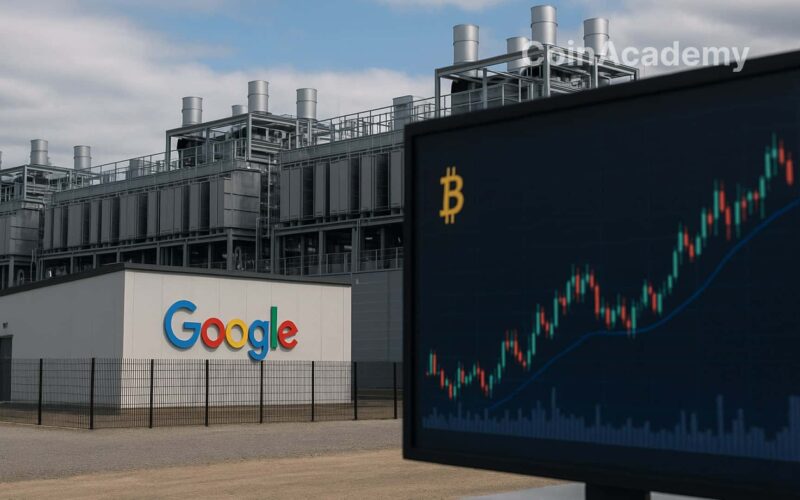TeraWulf, once solely focused on Bitcoin mining, has embarked on a strategic shift that could change the game: a $3.7 billion contract in AI infrastructure hosting. Behind this operation is a major partner: Google, through its parent company Alphabet.
Google digs deep and takes a slice of the TeraWulf pie
The deal, signed with infrastructure provider Fluidstack, spans 10 years and could more than double in value if the five-year extension options are activated. The goal is to transform a former mining site in New York into a high-performance computing behemoth, with over 200 MW of available IT power.
From Bitcoin mining to AI: a market-driven mutation
Since the Bitcoin halving and the decline in mining profitability, infrastructure costs have soared while BTC prices remain volatile. As a result, more and more historical players are diversifying into AI and high-performance computing, a rapidly growing sector.
Founded in 2021 on an eco-friendly model, TeraWulf has not escaped the storm. At the beginning of 2025, it still showed a net loss of $61.4 million in the first quarter. But the second quarter marked a return to profitability, evidence that the strategic repositioning is starting to pay off.
An immediate market reaction
Investors have applauded the pivot. WULF shares surged by up to 48% during trading, reaching a peak of $8.11 before closing up 37% at $7.50. With a market capitalization close to $3 billion, the stock has returned to positive territory for the year, driven by trading volume four times higher than average.
Despite this shift, TeraWulf retains its crypto DNA. The company self-mined 485 BTC in the second quarter (compared to 699 a year earlier) and holds around $90 million in cash, cash equivalents, and Bitcoin.
A symbol for the crypto industry
This deal illustrates a significant trend: mining giants are seeking a new lease on life in AI, a market where the demand for computing power is skyrocketing. By partnering with Google, TeraWulf is not only securing revenue for a decade but also positioning itself as a key player at the intersection of blockchain and artificial intelligence.
In this new ecosystem, it’s no longer just about hashrates; it’s about the ability to attract tech titans.




